South Carolina Senior Assistance Programs, Benefits, and Grants (2026)
 Senior Population: 1,464,926
Senior Population: 1,464,926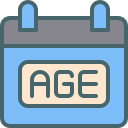 Median Age: 70.1
Median Age: 70.1 Veterans: 13.9%
Veterans: 13.9% Disability: 29.6%
Disability: 29.6% Renters: 15.3%
Renters: 15.3%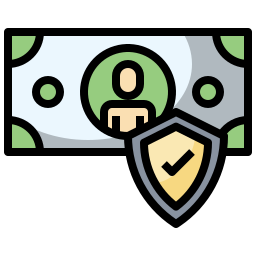 With Social Security Income: 77.8%
With Social Security Income: 77.8%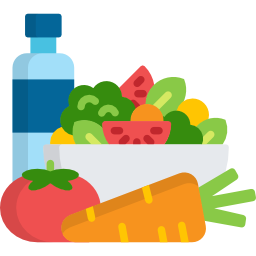 With Food Stamp/SNAP Benefits: 8.2%
With Food Stamp/SNAP Benefits: 8.2%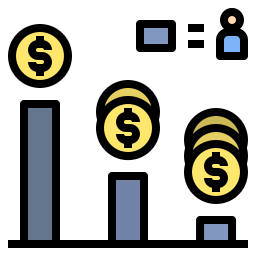 Below 100% of Poverty Level: 11.1%
Below 100% of Poverty Level: 11.1%Last updated:
Key takeaways
- Start local: Your Area Agency on Aging (AAA) is the best first stop for benefits screening, meals, caregiver support, and Medicare counseling. Use the SCDOA directory at Find services on GetCareSC.
- Health coverage: Low-income seniors may qualify for Healthy Connections Medicaid (including home- and community-based services) and for help paying Medicare costs via the Medicare Savings Programs. Get free counseling through I-CARE (SHIP).
- Food and nutrition: Apply for SNAP through SC DSS and use Congregate and Home-Delivered Meals via your local senior center.
- Utilities: Apply early each season for LIHEAP energy assistance (funding is limited). Check utility hardship funds like Dominion Energy’s EnergyShare and Duke Energy Share the Warmth.
- Housing help is complex: Many rental assistance waitlists are closed or long. Check HUD rental help in South Carolina and home repair help like USDA Section 504 Home Repair for rural homeowners age 62+.
- Caregiver support: The state funds respite, training, and small grants for caregivers via the Family Caregiver Support Program.
- Prescription help: If your medications are too expensive, ask about SeniorRx and Medicare’s Extra Help.
For stacking programs to reach $2,000+ monthly, see our senior benefits in 2026 guide.
If you need emergency help
- Call 911 if you are in immediate danger.
- Mental health crisis: Call or text 988 (Suicide & Crisis Lifeline), 24/7.
- Find local help 24/7: Call 2-1-1 or visit SC 2-1-1 (United Way).
- Elder abuse, neglect, or exploitation: Report to SC DSS Adult Protective Services and call local law enforcement for urgent danger.
- Long-term care concerns (nursing homes, assisted living): Call the SC Long-Term Care Ombudsman at 1-800-868-9095.
If you need help now—shelter, utilities, food, or urgent medical—start here: emergency assistance for seniors in South Carolina.
Benefits at a glance (quick reference)
| Need | Program | What it does | Where to apply/contact |
|---|---|---|---|
| Benefits navigation | Area Agencies on Aging (AAAs) | Screens for programs, meals, caregiver support, SHIP counseling | Find services on GetCareSC |
| Medicare help | I-CARE (SHIP) | Free, unbiased help choosing and using Medicare | Medicare & Fraud (SCDOA) |
| Medicaid | Healthy Connections Medicaid | Health coverage for limited income seniors; long-term care | SCDHHS Medicaid |
| Home care & waivers | Community Long Term Care (CLTC) | Home- and community-based services to avoid nursing home | SCDHHS CLTC |
| Food | SNAP (Food Stamps) | Monthly benefit to buy groceries | SC DSS SNAP |
| Meals | Congregate & Home-Delivered Meals | Hot meals at centers or delivered at home | SCDOA Nutrition |
| Energy bills | LIHEAP | Help with heating/cooling bills and crisis needs | SC Office of Economic Opportunity |
| Housing | HUD Rental Help & PHAs | Section 8 vouchers, public housing info | HUD SC Rental Help |
| Home repair (rural) | USDA Section 504 | Grants/loans to fix health/safety hazards | USDA Home Repair SC |
| Property tax | Homestead Exemption | First $50,000 of home’s value exempt for 65+ | SC Dept. of Revenue – Homestead Exemption |
| Prescriptions | SeniorRx & Extra Help | Finds free/low-cost meds; helps with Part D costs | SeniorRx • SSA Extra Help |
| Transportation | Medicaid NEMT | Rides to covered medical appointments (Medicaid) | SCDHHS Transportation |
For free benefits counseling and help applying for SNAP, Medicaid, or home care, contact your local Area Agencies on Aging in South Carolina.
If you’re relocating or helping family in another state, use our Area Agencies on Aging directory to find local help anywhere.
Reality check: Funding is limited for many programs and waitlists are common. Apply early, answer phone calls from unknown numbers after you apply (it could be a caseworker), and keep your paperwork handy.
While you wait on approvals, these charities that help seniors may offer one-time rent, utility, or food assistance
How to use this guide
- Start with your local AAA via GetCareSC. Ask for a benefits screening and SHIP (Medicare) counseling.
- Apply for the “big three” if you might be eligible: Medicaid, SNAP, and LIHEAP.
- If housing is your main need, check HUD SC rental help and ask your AAA about home repair and weatherization programs.
1) Statewide coordinators and key programs
South Carolina Department on Aging (SCDOA)
The SCDOA funds and coordinates services that help older adults stay independent and safe.
- Find local services and providers: GetCareSC directory
- Caregiver help and respite: Family Caregiver Support
- Nutrition programs: Congregate and Home-Delivered Meals
- Medicare counseling (SHIP, called I-CARE): Medicare & Fraud page
- Long-Term Care Ombudsman: Report long-term care concerns
Additional SCDOA initiatives:
- Alzheimer’s Resource Coordination Center (ARCC): Training, referrals, and grants to support families living with dementia. See ARCC program details.
- ElderCare Trust Fund: Competitive grants to nonprofits that help seniors age in place. See ElderCare Trust Fund.
- Evidence-Based Health Programs: Free workshops (like falls prevention and chronic disease self-management). See Title III-D programs.
- SeniorRx: Helps older adults and people with disabilities access pharmaceutical company assistance programs. See SeniorRx.
2) Income, taxes, and money management
Social Security and SSI
- Retirement, survivors, and disability benefits are handled by the Social Security Administration. Claiming ages and earnings affect benefit amounts; get guidance and apply online at the SSA website.
- Supplemental Security Income (SSI) provides a basic cash benefit for people 65+ or disabled with very limited income/resources; apply via SSA: SSI eligibility and application.
Tip: If you have both Medicare and low income, ask about Extra Help and the Medicare Savings Programs to reduce your premiums and copays (details below).
Review key 2026 Social Security and SSI updates to estimate monthly income and check benefit changes in South Carolina.
Property tax relief (Homestead Exemption)
- If you are age 65 or older (or totally and permanently disabled, or legally blind), the first $50,000 of the fair market value of your primary residence is exempt from property taxes under the state Homestead Exemption. Apply with your county auditor. See the SC Department of Revenue Homestead Exemption.
If you file taxes, check whether you qualify for the Credit for the Elderly or Disabled.
Scam and fraud protection
- Medicare fraud and ID theft are common. Learn how to protect yourself and report suspicious calls with the help of South Carolina’s Senior Medicare Patrol (SMP) via the Medicare & Fraud page.
- To report financial exploitation, also contact Adult Protective Services.
Skip ‘guaranteed grant’ offers—read free money myths, scams, and real help.
3) Health coverage and care
Medicare help (I-CARE / SHIP)
- Get free, unbiased help comparing Original Medicare, Medicare Advantage, Medigap, and drug plans. SCDOA’s I-CARE program is South Carolina’s SHIP. See I-CARE (SHIP).
Medicaid (Healthy Connections)
- Medicaid may cover seniors with low income and assets, including long-term care at home or in a facility. Learn more and apply at SCDHHS Medicaid.
- Dual eligible (Medicare + Medicaid) seniors can ask about Healthy Connections Prime, which coordinates Medicare and Medicaid benefits in certain counties.
Home- and community-based services (HCBS):
- Community Long Term Care (CLTC) evaluates seniors for long-term care needs and can connect eligible individuals with services at home (like personal care, respite, adult day health). See SCDHHS Long-Term Care.
- PACE (Program of All-Inclusive Care for the Elderly) may be available in some areas; it provides comprehensive medical and social services to people who need a nursing-home level of care but live in the community. Find programs via the National PACE Association directory.
Medicare Savings Programs (paying Medicare costs):
- If your income is limited, Medicaid may pay your Part B premium and sometimes deductibles and coinsurance. See Medicare Savings Programs (SCDHHS).
Extra Help for prescriptions:
- Extra Help (Low-Income Subsidy) reduces Part D drug plan premiums and copays. Apply via SSA: Extra Help application.
Prescription assistance:
- SeniorRx helps seniors and adults with disabilities access free or discounted medications through manufacturer programs. See SeniorRx (SCDOA).
- Welvista provides certain free medications to eligible uninsured residents. See Welvista.
Dental care:
- Medicaid dental benefits for adults are limited; many seniors use community clinics or charity programs.
- Dental Lifeline Network’s Donated Dental Services connects medically fragile or elderly patients with volunteer dentists. See Dental Lifeline Network – South Carolina.
- Find a low-cost clinic via the SC Free Clinic Association.
For low-cost clinics, donated care, and emergency options, check our guide to dental grants in South Carolina.
You can also use nationwide programs for free and low-cost dental care for seniors, including DDS, clinics, and dental schools.
Mental and behavioral health:
- Call 988 for immediate crisis help.
- For ongoing care, ask your AAA or primary care doctor for referrals, and check your Medicare Advantage or Medigap plan network. If you have Medicaid, ask about covered counseling services.
Reality check: Medicaid and waiver programs have waitlists. Apply as soon as you think you might qualify and keep your contact information up to date with the agency.
4) Food and nutrition
| Program | Who it helps | What you get | Where to apply |
|---|---|---|---|
| SNAP (Food Stamps) | Low-income individuals and households | Monthly benefit on EBT card to buy groceries | SC DSS SNAP |
| Congregate Meals | Adults 60+ | Hot meals at senior centers, plus activities | SCDOA Nutrition |
| Home-Delivered Meals | Homebound adults 60+ and caregivers/spouses | Regular meal deliveries to your home | SCDOA Nutrition |
| Senior Farmers’ Market Nutrition Program (seasonal) | Eligible low-income older adults | Vouchers for fresh produce at participating markets | Check with your AAA via GetCareSC or SC DSS Food & Nutrition Programs |
For SNAP, senior food boxes, farmers’ market coupons, and home-delivered meals, see food programs for seniors.
Supplemental local help:
- Find food banks near you via Feeding America’s locator. Major SC networks include Harvest Hope Food Bank and Lowcountry Food Bank.
Tip: If you can’t leave home, ask your AAA about home-delivered meals and options for special diets (diabetic, low-sodium).
5) Utilities, internet, and weatherization
Energy and water assistance
- LIHEAP: Helps with heating/cooling bills and urgent energy needs. Administered locally by Community Action Agencies through the SC Office of Economic Opportunity. Apply early: SC OEO – LIHEAP info.
- Weatherization Assistance Program (WAP): Improves home energy efficiency (insulation, sealing, minor repairs). In SC, WAP is also coordinated through local agencies; start with your AAA or the SC OEO.
- Utility company programs:
- Dominion Energy: EnergyShare and other options
- Duke Energy: Share the Warmth and Fan-Heat Relief
- Electric cooperatives (e.g., Operation Round Up) vary by co-op; check your bill or see The Electric Cooperatives of South Carolina to find your co-op.
- Palmetto Electric Cooperative: Operation Round Up
To cut bills and prevent shutoffs, explore energy assistance and efficiency grants for seniors, including LIHEAP and weatherization.
Note: The federal Low-Income Household Water Assistance Program (LIHWAP) was time-limited. Some local agencies may still help with water bills using other funds—ask your Community Action Agency and 2-1-1.
Phone and internet discounts
- Lifeline: Monthly discount on phone or internet for low-income households. See FCC Lifeline and check state info via the SC Office of Regulatory Staff.
- Affordable Connectivity Program (ACP): Federal funding lapsed in 2024. Some providers offer their own low-cost plans—ask your internet company and check the SC Broadband Office for updates and digital literacy help.
6) Housing, repairs, and homelessness prevention
For rent help, subsidized housing, emergency options, and county contacts, see housing assistance for seniors in South Carolina.
| Need | Program | What it provides | Where to start |
|---|---|---|---|
| Rental help | Housing Choice Vouchers & Public Housing | Rent subsidy via local housing authorities | HUD SC Rental Help |
| Affordable apartments | HUD-subsidized properties | Below-market rents for eligible tenants | HUD Resource Locator |
| Home repair (rural, 62+) | USDA Section 504 | Grants/loans to fix health/safety issues | USDA Home Repair SC |
| Weatherization | WAP via CAAs | Energy-saving upgrades and minor repairs | SC OEO |
| Critical repairs/ramps | Local nonprofits | Ramps, grab bars, accessibility, urgent repairs | Ask your AAA via GetCareSC; check local Habitat for Humanity |
| Homelessness prevention & shelters | CoC networks; Salvation Army; United Way | Eviction prevention, shelter, rehousing | HUD CoC contacts • SC 2-1-1 |
If you own your home and need safety fixes or accessibility upgrades, start with these home repair grants for seniors.
Not sure about eligibility, inspections, or timelines? Our home repair grants FAQs walk through common scenarios.
Reality check: Many voucher waitlists are closed. Check multiple housing authorities and HUD-subsidized properties. Keep documentation ready (ID, income proof, landlord info).
Tip: For accessibility (ramps, grab bars), ask your AAA about local “safe-at-home,” ElderCare Trust Fund–supported programs, and volunteer groups. Some counties partner with nonprofits for small home modifications.
7) Transportation
- Medicaid non-emergency medical transportation: Rides to covered appointments, pharmacy, dialysis. See SCDHHS Transportation.
- Senior transportation (non-Medicaid): Many AAAs fund local rides to medical visits, grocery stores, and senior centers. Ask your AAA via GetCareSC.
- Paratransit (ADA): If you can’t use fixed-route public transit because of a disability, apply for your local transit system’s ADA paratransit.
For paratransit, non-emergency medical rides, and fare discounts, start with transportation support for seniors.
Tip: Schedule rides early, especially for morning medical appointments. Confirm pickup windows the day before.
8) Caregiver support, dementia resources, and long-term care
- Family Caregiver Support Program: Training, support groups, information, and limited respite or supplemental services for caregivers of seniors, and for grandparents 55+ raising grandchildren. See Family Caregiver Support.
- Alzheimer’s and related dementias: The Alzheimer’s Resource Coordination Center offers training, information, and connects families with local respite and education programs.
- Long-Term Care Ombudsman: Investigates and resolves complaints about nursing homes, assisted living, and similar settings. See Ombudsman Program.
- Nursing home or assisted living: If you need facility care, ask CLTC about Medicaid coverage and options in your area: SCDHHS Long-Term Care.
9) Legal help and protection
| Issue | Program | What they do | Where to contact |
|---|---|---|---|
| Civil legal issues | SC Legal Services | Free help for eligible clients (housing, benefits, consumer, elder law) | SC Legal Services |
| Lawyer referral | SC Bar | Lawyer Referral Service and resources | SC Bar Lawyer Referral |
| Long-term care rights | SC Ombudsman | Investigates facility complaints and protects residents’ rights | Ombudsman Program |
| Medicare fraud | SMP via SCDOA | Education and help reporting suspected fraud | Medicare & Fraud (SCDOA) |
Use our Federal Poverty Level benefits checklist to prep income proofs and documents before applying.
Also see: DSS Adult Protective Services to report elder abuse, neglect, or exploitation.
10) Inclusive supports: reaching every senior
LGBTQ+ older adults
- Most services listed here are open to all. If you want an LGBTQ+-affirming contact, ask your AAA for inclusive providers.
- National support and resources: SAGE – Services & Advocacy for LGBTQ+ Elders and the SAGE Hotline at 877-360-5428 (available 24/7 in English/Spanish, with translation).
Veterans and military-connected seniors
- Benefits counseling and claims assistance: South Carolina Department of Veterans’ Affairs and your County Veterans Affairs Office.
- Aid & Attendance: A VA pension add-on for those who need help with daily activities or who are housebound. Learn more at VA Aid and Attendance and Housebound.
- State veterans’ nursing homes and services: Contact SCDVA for current locations, eligibility, and waitlists.
Seniors with disabilities
- Assistive technology: Device loans, demonstrations, and reuse via the SC Assistive Technology Program (SCATP) at USC.
- Benefits and work support: Ask your AAA about benefits counseling, home modifications, and paratransit. If you have Medicare and Medicaid, ask about Healthy Connections Prime.
Tribal members
- Catawba Indian Nation members should also check tribal resources and social services. See the Catawba Indian Nation for contacts. Most state and federal benefits apply to eligible tribal elders as well.
Rural seniors and limited access areas
- Home repair and accessibility: USDA Section 504 and weatherization via SC OEO.
- Telehealth and digital skills: Palmetto Care Connections offers telehealth and digital literacy support in rural communities.
- Rural health support: South Carolina Office of Rural Health for clinics, care coordination, and transportation links.
Find classes, meals, and social activities near you with our directory of senior centers in South Carolina.
11) Resources by region (find local help faster)
The easiest way to locate the right agency in your county is the SCDOA directory: Find services on GetCareSC. South Carolina AAAs generally follow regional councils of governments:
- Appalachian (Greenville, Spartanburg, Anderson, Oconee, Pickens)
- Upper Savannah (Abbeville, Edgefield, Greenwood, Laurens, McCormick, Saluda)
- Catawba (Chester, Lancaster, York)
- Central Midlands (Fairfield, Lexington, Newberry, Richland)
- Lower Savannah (Aiken, Allendale, Bamberg, Barnwell, Calhoun, Orangeburg)
- Santee-Lynches (Clarendon, Kershaw, Lee, Sumter)
- Pee Dee (Chesterfield, Darlington, Dillon, Florence, Marion, Marlboro)
- Waccamaw (Georgetown, Horry, Williamsburg)
- Berkeley-Charleston-Dorchester (BCD)
- Lowcountry (Beaufort, Colleton, Hampton, Jasper)
For each region, use the directory above to get current phone numbers, addresses, and program specifics in your county.
12) Program details and realities to keep in mind
- Waitlists happen. For vouchers, home-delivered meals, and HCBS waivers, waitlists are common. Get on the list; ask about interim options.
- Keep paperwork handy. Most programs require proof of age, identity, residency, income, and sometimes assets. Keep copies ready.
- Beware of scams. No government program will charge an “application fee.” When in doubt, ask your AAA or call 2-1-1.
- Reapply and recertify. Many programs require annual renewals or updates after a change in income, address, or household.
- Ask about appeals. If you’re denied, you may have the right to appeal. Deadlines are short—read notices carefully.
Browse all categories—housing, healthcare, utilities, food, and more—on the Grants for Seniors home page.
13) Frequently asked questions (FAQs)
Q1: I live on Social Security only. What should I apply for first?
- Start with a benefits screening at your Area Agency on Aging (AAA) via GetCareSC. Then apply for SNAP and LIHEAP. If your income is low enough, apply for Medicaid, and ask I-CARE (South Carolina’s SHIP) about Medicare Savings Programs and Extra Help.
Q2: Can seniors get TANF in South Carolina?
- TANF (called Family Independence in SC) is for families with eligible children. Seniors may qualify only if they are caring for an eligible child in their home. See SC DSS TANF for rules and how to apply.
Q3: Does South Carolina still have emergency rental assistance?
- The federal Emergency Rental Assistance (ERAP) programs were time-limited and most ended. For current options, check HUD South Carolina rental help your local Continuum of Care via HUD CoC contacts, and call SC 2-1-1 for local resources.
Q4: What’s the income limit for Medicaid for seniors?
- It depends on the coverage group (community Medicaid vs. long-term care). Income and resource rules also vary for couples. Get current guidance from SCDHHS Medicaid Medicaid or ask for help through your AAA.
Q5: How do I get rides to the doctor?
- If you have Medicaid, request a ride through the SCDHHS Transportation broker. If not, ask your AAA about senior transportation, volunteer driver programs, and ADA paratransit in your county.
Q6: I can’t afford my Medicare premiums and drug costs. Is there help?
- Yes. Apply for the Medicare Savings Programs (QMB, SLMB, QI) and Extra Help for Part D. Also call I-CARE (SHIP) for unbiased plan reviews and savings tips.
Q7: Are there programs to help with home repairs and accessibility?
- For rural homeowners 62+, check USDA Section 504 Home Repair. Ask your AAA about local nonprofits for ramps, grab bars, and critical repairs. Weatherization through SC OEO can address energy-related health and safety issues.
Q8: Where can I get legal help with housing or debt?
- Contact South Carolina Legal Services or the South Carolina Bar Lawyer Referral Service. For facility care issues, contact the Long-Term Care Ombudsman.
Q9: Is there a property tax break for seniors?
- Yes. South Carolina’s Homestead Exemption exempts the first $50,000 of your primary home’s value if you’re 65+, legally blind, or permanently disabled. Apply through your county auditor or assessor.
Q10: How do I report elder abuse?
- If someone is in immediate danger, call 911. Otherwise contact DSS Adult Protective Services and the Long-Term Care Ombudsman for facility concerns.
14) Helpful resource tables
Health and coverage contacts
| Topic | Agency/Program | Link |
|---|---|---|
| Medicare counseling | I-CARE (SHIP) | SCDOA – Medicare & Fraud |
| Medicaid | SCDHHS Healthy Connections | SCDHHS Medicaid |
| Long-term care (HCBS) | SCDHHS CLTC | SCDHHS Long-Term Care |
| Duals care coordination | Healthy Connections Prime | Healthy Connections Prime |
| Prescriptions | SeniorRx | SeniorRx |
| Extra Help (LIS) | Social Security | SSA Extra Help |
Housing and home repair
| Topic | Organization | Link |
|---|---|---|
| Rental help, vouchers, public housing | HUD SC | HUD SC Rental Help |
| Find subsidized apartments | HUD Resource Locator | HUD Resource Locator |
| Rural home repair (62+) | USDA Rural Development | USDA Section 504 – SC |
| Home energy upgrades | SC Office of Economic Opportunity | SC OEO |
| Homelessness systems | Continuums of Care | HUD CoC contacts |
Utilities and communications
| Topic | Program | Link |
|---|---|---|
| Energy bills | LIHEAP | SC OEO – LIHEAP |
| Dominion Energy | EnergyShare and options | Dominion Energy Assistance |
| Duke Energy | Share the Warmth; Fan-Heat Relief | Duke Energy Assistance |
| Electric co-ops | Find your co-op | Electric Cooperatives of SC |
| Lifeline | FCC | FCC Lifeline |
| Broadband office | SC ORS Broadband | SC Broadband Office |
Food and nutrition
| Topic | Agency/Program | Link |
|---|---|---|
| SNAP | SC DSS | Apply for SNAP |
| Meals (congregate & home-delivered) | SCDOA | Senior Nutrition Programs |
| Food banks | Feeding America | Find a Food Bank |
15) Sources (selected official links referenced above)
- South Carolina Department on Aging (SCDOA): aging.sc.gov
- GetCareSC service directory: getcaresc.com
- SCDHHS (Medicaid): scdhhs.gov
- HUD South Carolina rental help: hud.gov/states/south_carolina/renting
- SC Office of Economic Opportunity (LIHEAP/WAP): oeo.sc.gov
- SC DSS (SNAP): dss.sc.gov/assistance-programs/snap/
- SC Dept. of Revenue (Homestead Exemption): dor.sc.gov/tax/pt/homestead-exemption
- Dominion Energy SC: dominionenergy.com/south-carolina
- Duke Energy assistance: duke-energy.com/community/customer-assistance-programs
- Dental Lifeline Network SC: dentallifeline.org/south-carolina
- SC Free Clinic Association: scfreeclinics.org
- SC 2-1-1: sc211.org
- Adult Protective Services (DSS): dss.sc.gov/abuseneglect/adult-protective-services/
- South Carolina Department of Veterans’ Affairs: scdva.sc.gov
- SSA Extra Help (Medicare LIS): ssa.gov/benefits/medicare/prescriptionhelp/
Disclaimer
Program rules, funding levels, eligibility limits, and contact details change over time. Always verify information with the official agency or program website before applying or making decisions. This guide is for general information and is not legal, financial, or medical advice.
About this guide
by the GrantsForSeniors.org Editorial Team
The GrantsForSeniors.org editorial team has been building benefit and assistance resources for seniors nationwide since 2020. We research programs across all 50 states by reviewing government websites, checking agency updates, and gathering information from available sources.
Our commitment to you:
- Experience & Expertise: The information in this guide is compiled and reviewed by a team with experience in senior services and financial aid programs. We are committed to sharing our knowledge to help you find the support you need.
- Authority & Trust: We rely on verified sources, including government agencies, non-profit organizations, and official program websites, to ensure the accuracy of our content. Our goal is to be a trusted authority you can rely on for credible information.
- Clarity & Accessibility: We understand that seeking financial assistance can be challenging. This guide is designed to be clear and easy to understand, breaking down complex topics into actionable steps.
While we work hard to provide the most accurate information available, please note that program details and eligibility requirements can change. We recommend always checking with the official program source or agency website for the most current information, as we are not official agencies but rather compile available information.
- Last Updated: January 2026
- Sources Verified: January 2026
- Next Review: April 2026
If you find outdated information, discover new resources, or have questions, please contact us at info@grantsforseniors.org. We’re here to help seniors find resources that can make a real difference in their daily lives.

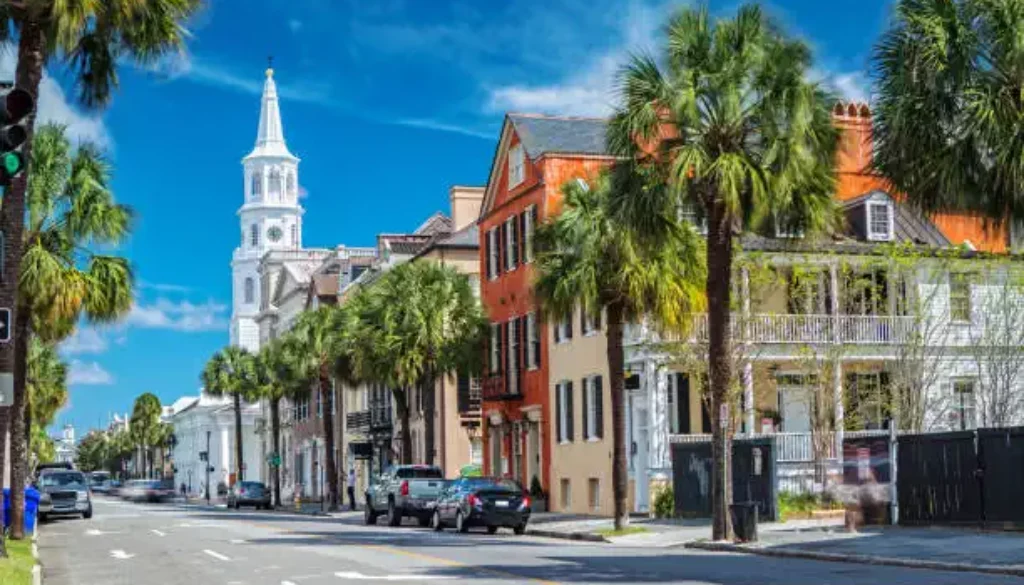
 Data is taken from 2024 (latest): ACS 1-Year Estimates Subject Tables.
Data is taken from 2024 (latest): ACS 1-Year Estimates Subject Tables.

